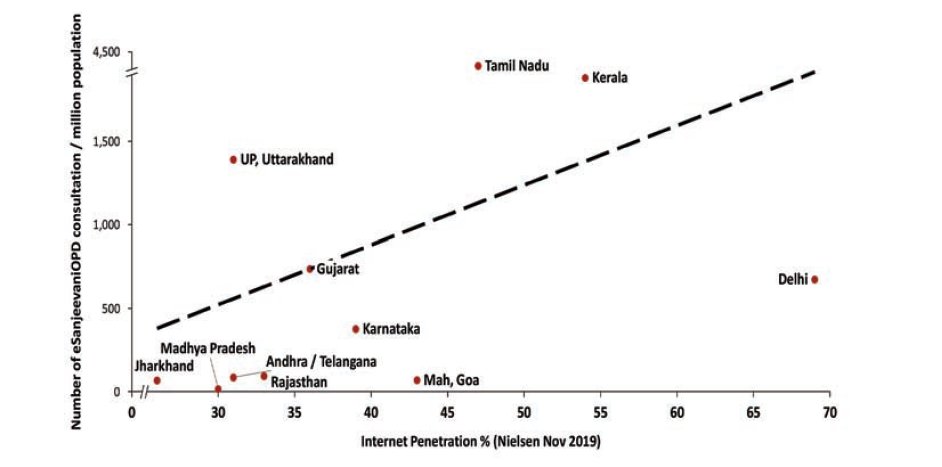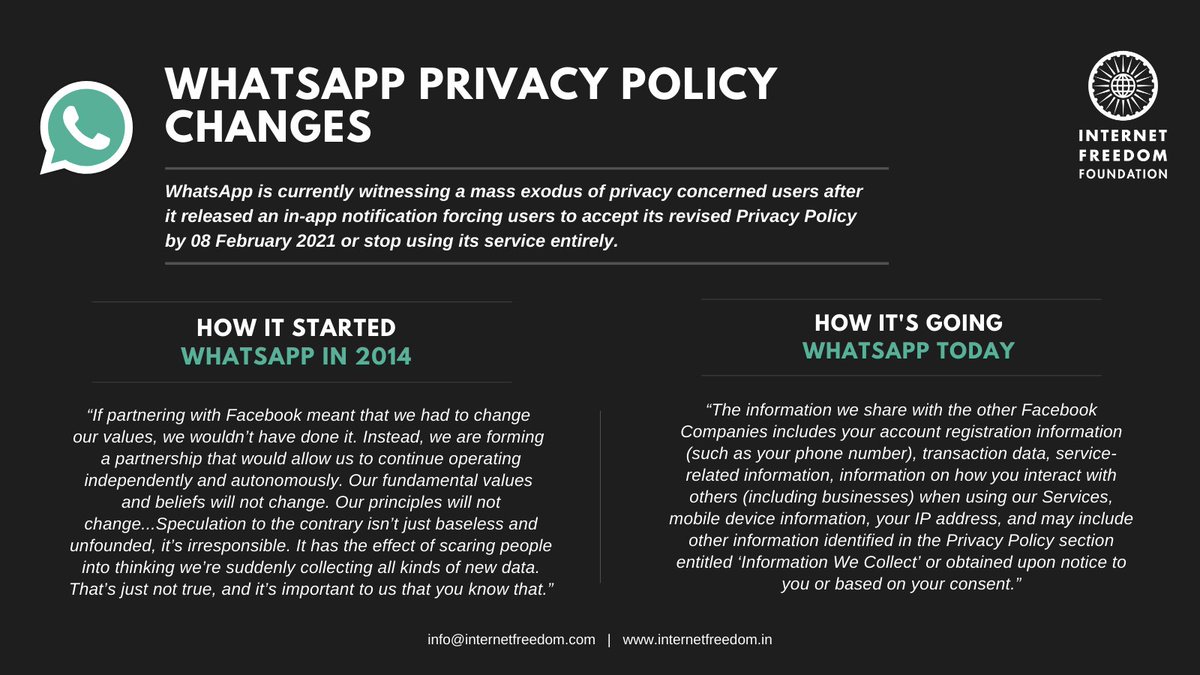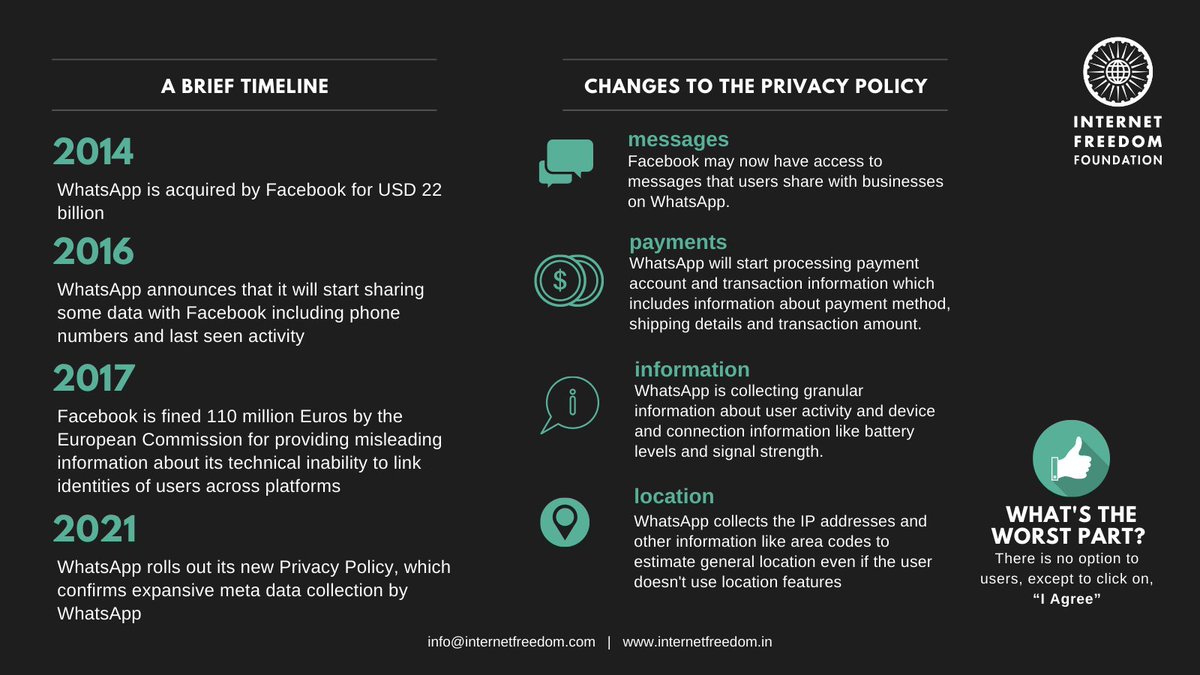
📢IFF along with @fsmi_in and @SFLCin released a joint statement yesterday condemning the use of internet shutdowns to suppress the farmers' protest. Learn about how you can support this important call. #keepiton 1/n
internetfreedom.in/joint-statemen…
internetfreedom.in/joint-statemen…
Such internet shutdowns will only increase the risk of violence and misinformation and they cannot be considered necessary or proportionate. 2/n
The internet shutdowns have made it impossible for journalists to provide real time updates about the protests and taken away the farmers’ ability to present their version of events through social media. 3/n
Farmers are also finding it difficult to arrange food and other supplies in absence of internet and SMS services which is impacting their right to life. 4/n
Since the joint statement was published, the Haryana Govt has issued another order extending the internet shutdown till 05:00 PM today in 14 districts. 5/n
We fear that internet shutdowns have become the govt's routine response to protests and we urge other Indian organisations and individuals to consider endorsing this joint statement. 6/n
struggles.in/MobilisationCa…
struggles.in/MobilisationCa…
• • •
Missing some Tweet in this thread? You can try to
force a refresh











